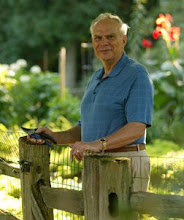Just before the conclusion of the story, North Wind identifies herself to Diamond: "I don't think I am just what you imagine me to be. I have to shape myself various ways to various people. But the heart of me is true. People call me by terrible names and think they know all about me. But they don't. Sometimes they call me Bad Fortune, sometimes Evil Chance, sometimes Ruin--and they have another name for me that they think the most terrible of all." "Another name" is, of course, Death.
Why hasn't MacDonald told the child listener this sooner? Isn't this the central idea of the the story? Yes, considered from an abstract point of view. But there is another understanding that from a spiritual standpoint is much more important: the understanding of the heart. It is this MacDonald wants to instill within the child's thinking. As much as possible, he wants to keep a purely abstract grasp, with all its negative emotional connotations, at bay.
As we have remarked before, he has many Biblical passages in mind, uppermost among them James 1:2: ". . . whenever you face trials of any kind, consider it nothing but joy, because you know that the testing of your faith produces endurance. . . ." and Romans 5:2: ". . . we boast in our hope of sharing the glory of God. And not only that, but we also boast in our sufferings, knowing that suffering produces endurance, and endurance produces character, and character produces hope, and hope does not disappoint us. . . ." Like Paul, MacDonald is wanted to shape positively the reader/listeners attitudes toward trials and suffering and linking them closely to hope. The imagination is proving to be a powerful tool for his purposes.
Diamond contrasts with other characters, mainly Nanny and his father, in this regard. Admirable as both are in many characteristics, neither is thinking in terms of hope. Nanny is a plucky little materialist who undergoes extreme difficulty and hardship, but she ridicules faith and hope, and therefore must be taught through severe trial: her illness. Joseph is an honest, hard working man, doing his best to fulfill his role as husband and father, but because he is a grumbler, lacking an active faith and hope, he also must endure trial. His trial comes in the form of Ruby, the horse that Mr. Raymond deposits with him in order to discern what type of man he really is. Raymond's purpose is God-like: "He had met Diamond's father and liked him, but he had decided to test them all before he did anything as good as he would like to do for them" (Chapter 27).
The above passage in which North wind identifies herself is in the context of an extended conversation on the nature and value of dreams, and their relation to our waking life. This is a concern that surfaces often in MacDonald's writings. Diamond's concerns that his dreams have no reality beyond that of his own dreaming mind echo those MacDonald himself has felt. But he consistently comes to the conclusion expressed here by North Wind: "The people who think lies and do lies are very likely to dream lies. But the people who love what is true will surely now and then dream true things. But it depends too on whether the dreams are homegrown, or whether the seed of them is blown over somebody else's garden wall" (306). The validity of one's dreams is directly related to one's spiritual stature before God, and is very much an individual affair. Because Diamond is what he is, she assures him: "I don't think you could dream anything that didn't have something real like it somewhere" (300). But she also reminds him that he couldn't remember the song he heard the angels sing. The final reality of heaven is quite beyond what eye has seen, ear heard, or has entered into the heart of anyone (I Cor. 2:9).
The narrator muses concerning Diamond: "It seemed to me, somehow, as though little Diamond held the secret of life, and that he was himself what he was so ready to consider the lowest living thing--an angel of God with something special to say or do" (287). Clues to the nature of this secret of life lie in the many truths of the heart that are expressed throughout the text. The poem "Where did you come from, baby dear?" offers one: every individual life is a gift from God and expresses--in terms of what it has the potential to become--a thought of God (267, 68). Some of the others are: The only true possession is the possession of love (269). Everyone loves something; life consists in loving rightly (277; shades of Augustine and Dante here!). The greatest wisdom in life is foolishness to all who do no possess it (279). Many others from the text could be added.
The fairy tale is the best vehicle for conveying such truths, truths that are at the same time simple, profound, and so applicable to life at its core. This is why the Inklings all celebrate such stories. Chesterton in Orthodoxy expresses the core idea: "My first and last philosophy, that which I believe in with unbroken certainty, I learnt in the nursery. . . . The things I believed most then, the things I believe most now are the things called fairy tales. They seem to me to be the entirely reasonable things. They are not fantasies: compared with them other things are fantastic. . . . Fairyland is nothing but the sunny country of common sense" ("The Ethics of Elfland")." At the Back of the North Wind" is by any measure an excellent example of such a story.
Thursday, October 11, 2012
Subscribe to:
Post Comments (Atom)

No comments:
Post a Comment